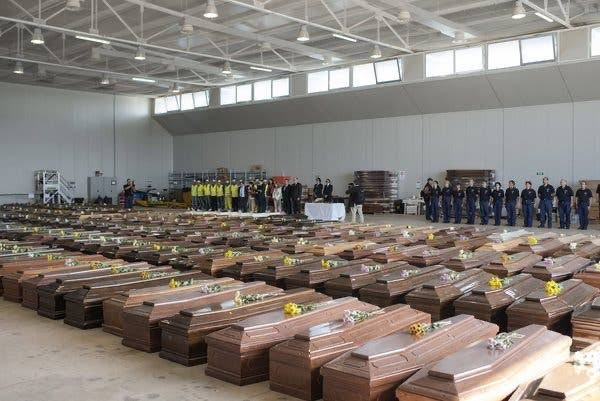When a political class has utterly failed it tries to make a national virtue of this failure or, what is not mentioned here, find scapegoats to blame it on.
Branko Milanović is an economist specialised in development and inequality. His newest book is “Capitalism, Alone: The Future of the System That Rules the World”
Cross-posted from Branko’s blog

In a recent Blomberg column Tylor Cowen discusses how the relative positions of China and the US are affected by the pandemic. While the column makes some interesting points about the vaccines, and also rehashes the well-known arguments, many of which have nothing to do with the pandemic (China’s lack of allies and the problems of the Belt and Road Initiative), there is one especially perverse take of Cowen’s which needs to be challenged.
He argues that quarter a million of American deaths (so far) shows America’s toughness, readiness “to tolerate causalities”, and to disprove Chinese military planners’ view of Americans as “soft” and effete.
Cowen is misled by simply looking at the number of deaths and imagining that every death, whatever its cause, is the same. To argue that the willingness to suffer deprivation and ultimately to die is a sign of courage, character, and determination you need two elements: agency and meaning. Agency is individuals’ conscious readiness to face terrible odds; meaning is individuals’ decision to do so because they believe in what they are doing. Neither is present in covid deaths. These are not deaths imbued with agency, not do they have any higher meaning, neither for the individuals nor for the community.
I will try to explain this by giving three examples. In doing so, I define “meaning” not as seen and approved by an external observer, but as experienced by the person who is sacrificing himself or herself. Take the Nazi prosecution of the War. Very few people would disagree that it was morally evil. Nevertheless the willingness of German soldiers on the Eastern Front to take enormous casualties and the willingness of the German civilian population to suffer bombing without much demur, shows the strength of their beliefs. So it does carry a meaning, Or take the Communists who were massacred by Chiang Kai-sheck’s forces in 1927. They also showed, through their example of fighting “hope against hope” a much more powerful and vicious enemy, the strength of their beliefs. Or finally consider early Christians facing Roman persecutions. There is little doubt that their stubbornness and readiness to die for a new religion led ultimately to the triumph of Christianity. So in all three cases, with vastly different moral implications, individual agency was present among those who sacrificed themselves. Their sacrifice, in their own eyes, imbued that suffering and death with a meaning. The ideals for which they were ready to die were indeed very different: extreme nationalism and racism, an ideology (Communism) or a religion. (One could of course use numberless other examples, including those of Americans who died in the Civil War, two World Wars, the Korean war, the Vietnam war and so forth.)
But dying of an epidemic does not carry any of these two messages. No one courts a covid death in order to highlight the value of American democracy, or any other ideology or ideal. No individual thinks that by dying from covid she is furthering any cause in which she believes. Covid deaths are –however we may be loath to admit it—in a larger sense meaningless. Or more exactly, their only meaning is indeed the meaning that most people assign to them: they show terrible disorganization of societies where they occur. That disorganization can be economic (societies are poor), political (their system is dysfunctional), medical (absence of equipment) or any other. But they surely do not have any grand ideological significance.
Cowen’s wrong reasoning would lead us, by his perverse logic, to think that high suicide rates are to be hailed as a sign of a society being “tough” rather than being sick. The same is true of high death rates from alcohol or opiates. When Russia’s death rates skyrocketed during the 1990s, due to suicides and alcohol, this was not an indication of Russia’s strength but of Russia’s weakness.
The deaths of despair or the deaths due to societal mismanagement do not send a message about society’s grit, endurance, determination, or faithfulness to an ideal but rather the reverse—about the society’s failure.



Be the first to comment